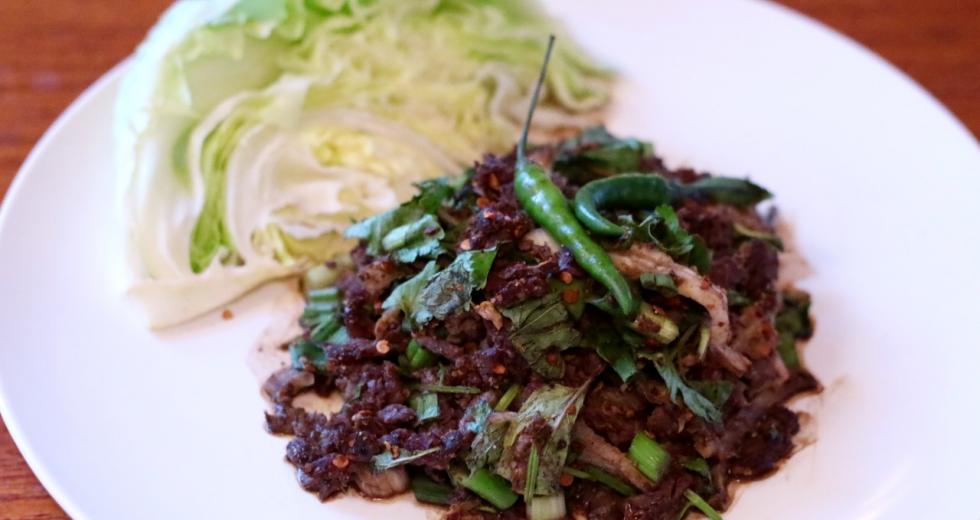Taurine, the energy-drink ingredient purported to increase stamina and athletic performance, was first isolated in beef bile — hence the brand name Red Bull. Today, the taurine in sodas and supplements is synthetic, but South Area Market, one of Sacramento’s longest-standing Lao restaurants, serves the real thing.
Order thom keuang nai, roughly translated “intestines soup” on the whiteboard menu, and the server behind the counter will ask how bitter it should be. A scant spoonful of bile tossed over the bowl yields a subtle sting, like a still-green banana, that slices through the unctuousness of the offal. A larger dose works like the chorus pedal on a guitar, the bitterness of each bite echoing into the next. Bile also anoints the bitter beef laab, meat and tripe chopped with herbs, onions, chiles and nutty toasted rice powder — a play between crunch and chew, verdancy and richness, pleasure and pain. (There are many chiles.)
South Area Market is a Lao restaurant and store in south
Sacramento. (Photo courtesy of Nancy Soukasene)
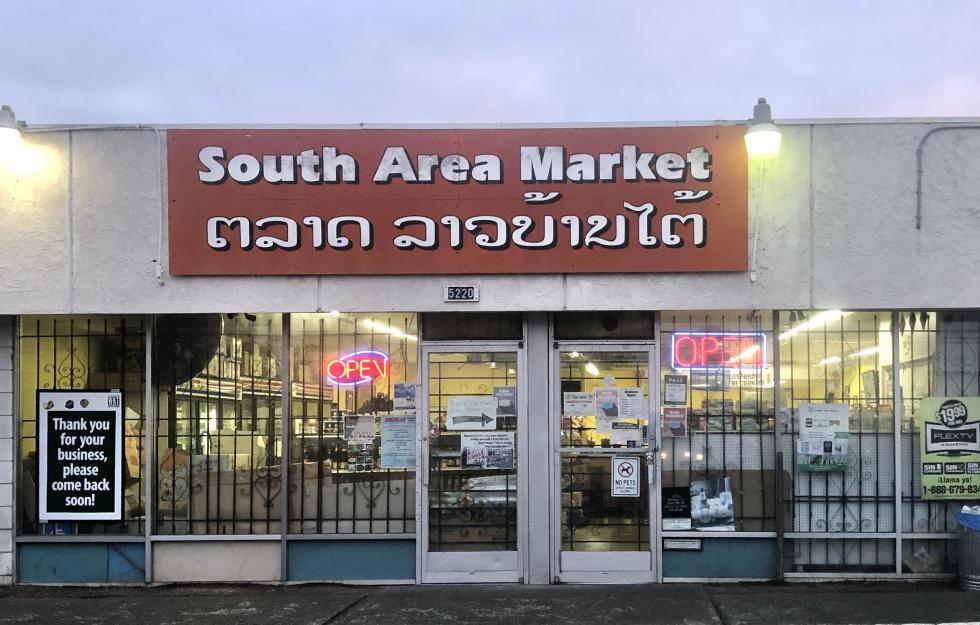
The Soukasenes were both born in Laos — La in Vientiane, the capital city, Sisouk in Pakse in the south — and met in a refugee camp in the Philippines en route to the United States. They settled in Stockton in 1980 and opened a small market there a few years later. In 1992, Sisouk found the space that would become South Area Market and moved his family to Sacramento. He also opened a tax preparation business, 99 Tax Service, when the appliance shop next door to the market closed in the late ’90s. But it was always difficult to compete with the larger, more established Asian supermarkets in nearby Little Saigon, and the Great Recession threatened to deal the store a final blow.
Thom keuang nai is a Lao beef soup that includes intestines,
tripe and herbs. (Photo by Jennifer Fergesen)
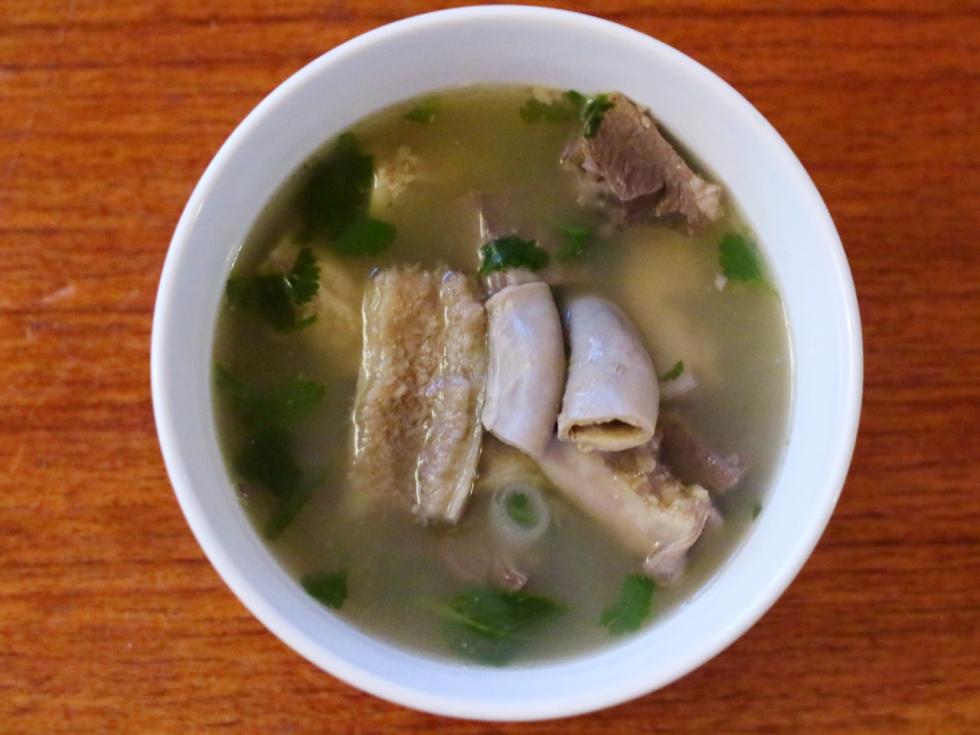
The bet paid off. The kitchen fed what was then an underserved market in Sacramento: The region has the largest Lao community in the country — 12,758 people, according to data compiled by the Hmong Studies Internet Resource Center from the 2010 census — but few Lao restaurants. Some Lao restaurateurs choose to open Thai restaurants, often secreting dishes such as khao piak sen (chicken soup with tapioca noodles) on menus otherwise dominated by stir fries and stoplight-colored curries. But Thai and Lao food are not interchangeable, and a craving for bitter beef larb or papaya salad funky with fermented crab can’t be met with their Thai equivalents. When South Area Market started selling the dishes people missed, word soon spread.
One of the most popular dishes at South Area Market is ka piek
(elsewhere spelled khao piak sen), chicken soup with homemade
tapioca noodles and blood cubes. (Photo by Jennifer Fergesen)
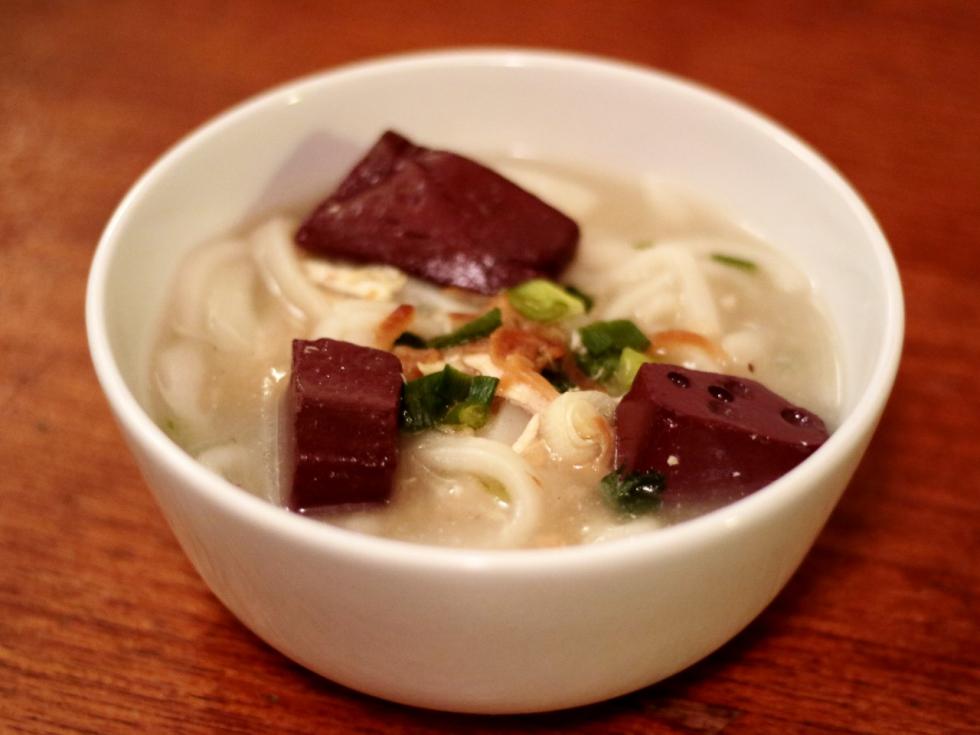
In 2020, the business reverted back to Sisouk’s original vision. The tables are now off-limits, in keeping with COVID-19 guidance from the California Department of Public Health, and a steady (and widely spaced) stream of customers lines up at the counter for takeout. Sales slowed around the beginning of the shelter-in-place order, but business is otherwise as usual, says Nancy. “Even if we were struggling, we would still stay open,” she says. “Because my dad’s mindset is like, ‘What if our customers are hungry? They’re going to need food.’ So we stay open no matter what.”
As a pandemic precaution, South Area Market now only serves
takeout. (Photo courtesy of Nancy Soukasene)
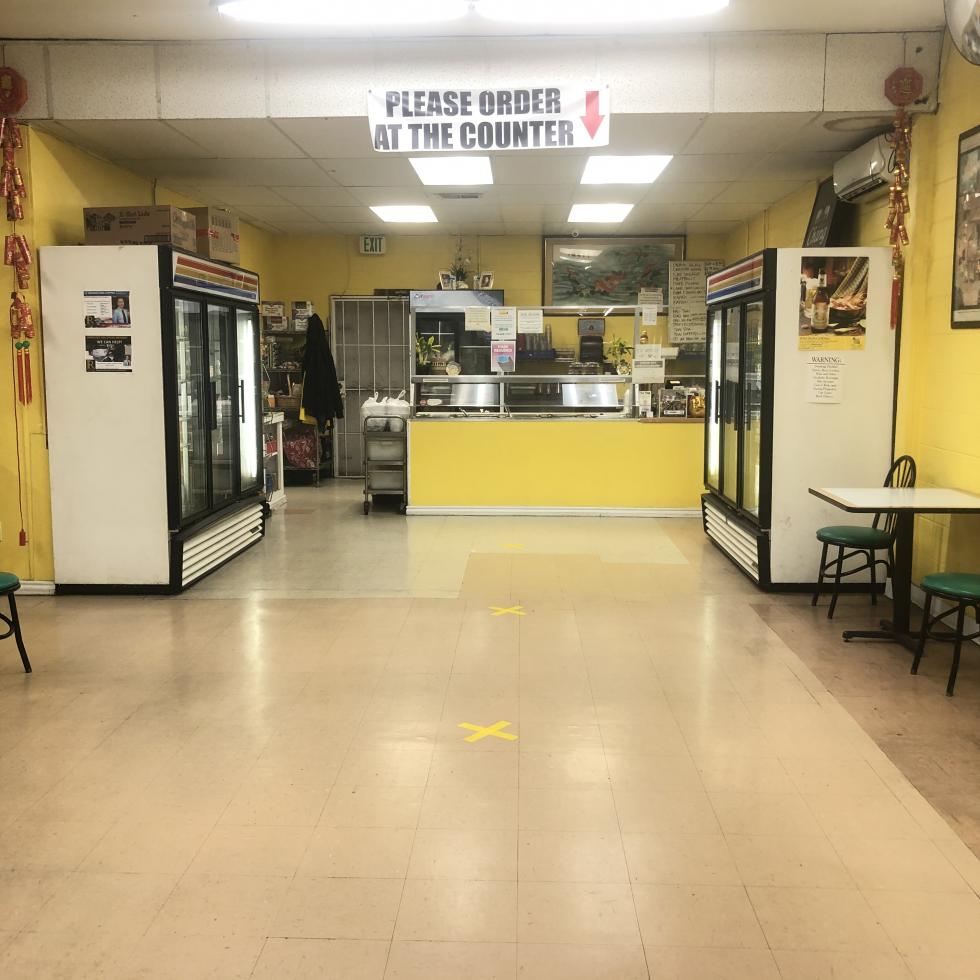
“As we get older, what if the food disappears because we don’t have the older generation here?” she says, her voice growing tight with emotion. Her goal is to learn all of her mother’s recipes, including dishes like nam khao (crispy rice salad) as well as or lam (water buffalo stew) that are not yet on the menu. “I want to continue providing authentic Lao food to the community,” she continues. “We’ve got to keep trying to learn it to keep the tradition going.”
–
Tell us what you want to see in Comstock’s: Take our reader feedback survey and be entered to win a $100 gift card.
Recommended For You
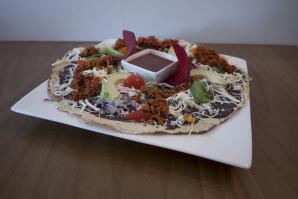
A Taste of Oaxaca
Mezcalito Oaxacan Cuisine shares regional Mexican culture with Sacramento diners
At Mezcalito Oaxacan Cuisine in Rocklin, the mole takes two days and nearly two dozen ingredients to complete. The recipe reads like a catalog of the Mexican state of Oaxaca’s agricultural bounty: plantains, green apples and raisins; warm spices and half a dozen kinds of chiles; a liberal dose of sparsely-sweetened chocolate.
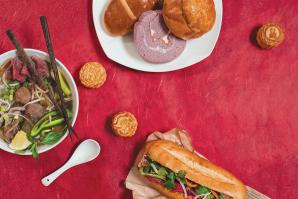
Lineage of Success
Family businesses are the heart and soul of Little Saigon in south Sacramento
The pandemic hurt the small businesses that make up Little Saigon’s microeconomy, but business owners and their customers are hanging on.
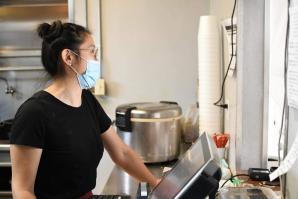
A Double-Edged Service
Third-party delivery services help — and hinder — restaurants during COVID-19
The commission delivery companies take per order, a range between 20-40 percent, has many wondering if these services are taking advantage of an unfortunate situation.
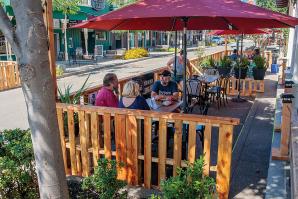
Resetting in Historic Folsom
The return of dining is important to the vitality of Sutter Street — but challenges exist
Folsom’s Sutter Street banks on its dining options to draw foot traffic. Now, the community is working to lift restaurants out of record-breaking lows.



